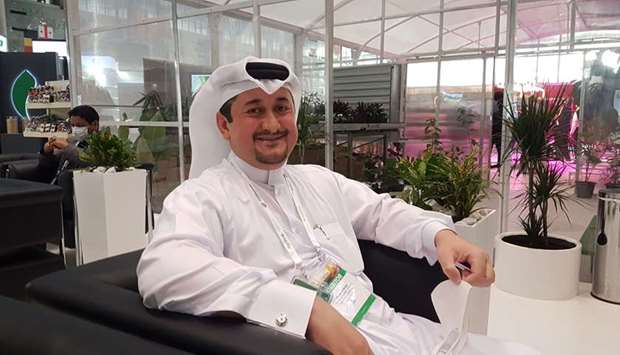The uptrend in the volume of vegetable production in Qatar is expected to continue year-on-year, ensuring a steady supply of fresh produce from local ‘active farms’, a prominent agriculturist told Gulf Times.
“If local farms produced around 40,000 tonnes in the past years, we have reached 60,000 tonnes this year due to the increase in the number of production (active) farms and the growing area and greenhouses,” said Nasser Ahmed al-Khalaf, who is also the owner and managing director of Agrico, a private Qatari agricultural development company.
He also cited the significant contribution of advanced farming technology in growing various types of vegetables in the country even during the summer season.
Some of these fresh produce include cucumber, tomato, zucchini, eggplant, lettuce, bell pepper, onion, beans, capsicum, and other green leafy vegetables, in addition to mushrooms.
“We are at the end of the season this year, but some farms will continue to produce until end of June using greenhouses with cooling system. Unfortunately the production does not last during summer and the only way is using high tech greenhouse with cooling and hydroponic system,” al-Khalaf said.
Agrico has developed a highly sophisticated hydroponics system capable of producing various types of organic and pesticide-free vegetables and fruits year-long. It also ventured in aquaponics aimed at producing better and high quality yields at a faster pace.
He noted that Qatar also started exporting its hydroponics farming technology in the region, particularly to Oman where a 1mn sqm farm is being developed and could be ready by next year. Agrico will be in charge of its operation and marketing.
Al-Khalaf expressed confidence that the volume of vegetable production in Qatar will keep increasing annually “but our aim is not only to increase the amount of production but also the ‘season of production’”.
“I’m happy to see some farms are following on our steps and start to use our technology. As a result we do have some farms that are producing vegetables all year long,” he stressed.
It is learnt that the growing demand for fresh produce in the country prompted many non-productive local farms to become active and adopted hydroponics farming.
“If local farms produced around 40,000 tonnes in the past years, we have reached 60,000 tonnes this year due to the increase in the number of production (active) farms and the growing area and greenhouses,” said Nasser Ahmed al-Khalaf, who is also the owner and managing director of Agrico, a private Qatari agricultural development company.
He also cited the significant contribution of advanced farming technology in growing various types of vegetables in the country even during the summer season.
Some of these fresh produce include cucumber, tomato, zucchini, eggplant, lettuce, bell pepper, onion, beans, capsicum, and other green leafy vegetables, in addition to mushrooms.
“We are at the end of the season this year, but some farms will continue to produce until end of June using greenhouses with cooling system. Unfortunately the production does not last during summer and the only way is using high tech greenhouse with cooling and hydroponic system,” al-Khalaf said.
Agrico has developed a highly sophisticated hydroponics system capable of producing various types of organic and pesticide-free vegetables and fruits year-long. It also ventured in aquaponics aimed at producing better and high quality yields at a faster pace.
He noted that Qatar also started exporting its hydroponics farming technology in the region, particularly to Oman where a 1mn sqm farm is being developed and could be ready by next year. Agrico will be in charge of its operation and marketing.
Al-Khalaf expressed confidence that the volume of vegetable production in Qatar will keep increasing annually “but our aim is not only to increase the amount of production but also the ‘season of production’”.
“I’m happy to see some farms are following on our steps and start to use our technology. As a result we do have some farms that are producing vegetables all year long,” he stressed.
It is learnt that the growing demand for fresh produce in the country prompted many non-productive local farms to become active and adopted hydroponics farming.


